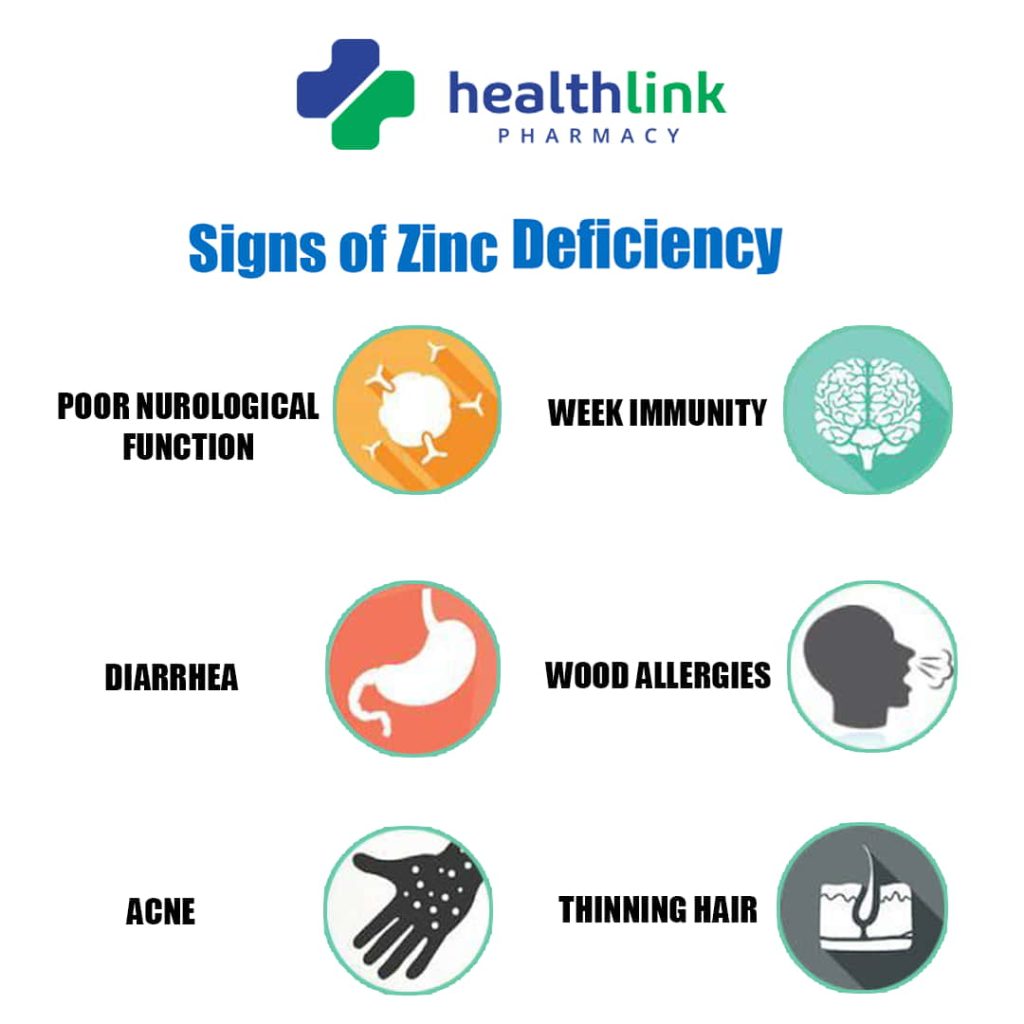Zinc is a vital mineral crucial for many biological functions, including immune response, DNA synthesis, and cell division. A deficiency in zinc can lead to a host of health issues. This article explores the common signs of zinc deficiency, its potential causes, and the populations most at risk.
Understanding Zinc and Its Importance
Zinc is a trace element that is essential for maintaining overall health. It plays a critical role in:
- Immune function: Zinc is necessary for the proper functioning of T-lymphocytes, which manage the immune response.
- Protein synthesis and cell growth: Zinc participates in the synthesis of proteins and helps in the creation and repair of DNA.
- Wound healing: Zinc is vital for skin integrity and necessary in the healing of cuts and bruises.
Signs of Zinc Deficiency
Zinc deficiency can manifest in various ways, affecting multiple aspects of health:
- Weakened Immune System
- Frequent colds and infections
- Prolonged recovery periods
- Skin Changes
- Increased acne or rashes
- Slow wound healing
- Dry, flaky skin
- Hair Loss
- Unusual hair loss that is not related to genetic factors
- Thinning hair
- Gastrointestinal Problems
- Diarrhea
- Loss of appetite
- Unintended weight loss
- Neurological Symptoms
- Mood swings and irritability
- Difficulty concentrating or remembering
- Delayed Growth in Children
- Stunted growth
- Delayed sexual maturation
- Taste and Smell Disturbances
- Decreased ability to taste
- Diminished sense of smell
Causes of Zinc Deficiency
Zinc deficiency can occur for several reasons:
- Insufficient Dietary Intake: Poor diet lacking zinc-rich foods like meat, shellfish, seeds, and nuts.
- Absorption Issues: Conditions such as Crohn’s disease, ulcerative colitis, and chronic renal disease can impair zinc absorption.
- Increased Zinc Loss: Diabetes, perspiration, and alcohol consumption can increase zinc excretion.
At-Risk Populations
Certain groups are more susceptible to zinc deficiency:
- Pregnant and Breastfeeding Women: Increased zinc demand during pregnancy and lactation.
- Infants and Young Children: Rapid growth phases require more zinc.
- Vegetarians and Vegans: Plant-based diets have lower bioavailability of zinc.
- Elderly: Poor absorption due to age-related changes and often limited dietary intake.
Diagnosis and Treatment
Diagnosing zinc deficiency involves a combination of dietary assessment, symptom evaluation, and blood tests to measure zinc levels. Treatment typically includes:
- Dietary Changes: Incorporating more zinc-rich foods.
- Supplements: Zinc supplements under medical supervision.
Conclusion
Recognizing the signs of zinc deficiency is crucial for prompt intervention, which can mitigate its adverse effects on health. Individuals suspecting a deficiency should consult healthcare professionals for appropriate testing and treatment strategies. Ensuring a diet rich in zinc or taking supplements can effectively prevent and address this deficiency.
______________________________________________________________________________________________
Ali, R. (2024b, May 17). How Does Eating Protein Help You Build Muscle? Health Link Pharmacy. https://healthlinkpharmacyllc.com/how-does-eating-protein-help-you-build-muscle/

